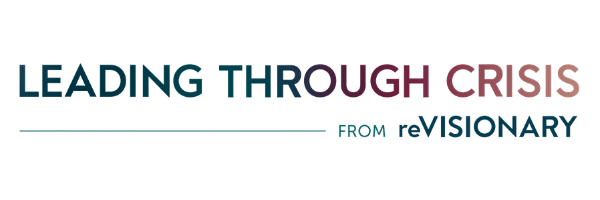Rethinking Career Development with Julie Winkle Giulioni
Listen to this episode on Apple Podcasts or Spotify
Like most kids, I wanted to be a grown-up when I was a kid. I didn’t have a particular idea of what that entailed but, in my kid brain, it seemed like a lot of fun and freedom. I am pretty sure I thought that whatever I chose to do would easily provide me the life I desired. For me, that meant when I was asked what I wanted to be when I grew up I inevitably answered a dancer, an actor, or a check-out person -- because I thought there was nothing cooler than running an item over a scanner and getting to play with money. The interesting thing is that, up until the age of about 7 or so, all of these answers were seen as cute and grown-ups would laugh when I said them.
But, at a certain point, it stopped being cute. And they would say things like: “what about a doctor?”, “you could be a nurse if you wanted”, “wouldn’t you enjoy being an accountant?” (true story – because I was “good” at math as a kid, multiple people asked me the accountant question). I remember being confused and disappointed that my answers suddenly weren’t good enough. And, for years, I said I wanted to be a doctor because that seemed to be the answer that everyone respected and wanted to hear.
Yet, the truth is, I never wanted to be a doctor. I simply felt the pressure and expectations of other people and moulded myself to what they thought would be best as a result of that.
Nowadays, when I go to an event, or a party, or meet new people, one of the first (if not, in fact, the first), questions I get asked is: “What do you do for a living?” It’s like the adult version of “what do you want to be when you grow up?” – an acceptable question that opens a conversation, albeit not always the most interesting one.
If I’m being completely honest, I really dislike this convention we have in conversation, as I usually think the work that people do is one of the least interesting things about them. And yet, most of us default to this because it seems strange to ask different questions like:
“What impact do you want to have?”
“What are you excited about these days?”
“What are you learning about right now?”
The truth of the matter is that how we think about and talk about work is rife for disruption – whether inside or outside of work environments. The way we work has changed and will continue to change. The types of work and careers that people have has changed and will continue to change. Collectively, we have the opportunity to rethink and redefine everything about the workplace and how we talk about it.
My guest on the podcast this week, Julie Winkle Giulioni, has just released a new book “Promotions Are So Yesterday: Redefine Career Development. Help Employees Thrive” which, like all of her work, addresses an aspect of rethinking the workplace.
As we discussed in this episode, she is committed to helping people rethink career development so there can be an increase in satisfaction and engagement. Despite the fact that careers have changed dramatically in the last few years, career development hasn’t. And, Julie believes there is a huge opportunity for leaders, organizations, and individuals to address that now.
We get into a number of things in our conversation including the top two career development priorities most people have, questions we can ask instead of “where do you see yourself in 3-5 years?”, a tool managers can use to help increase satisfaction and engagement, how we’ve conflated career development and promotions, and the importance of recognizing the value of individual contribution.
Listen in to see what resonates. And, if any of this is interesting to you, make sure to check out Julie’s new book, “Promotions Are So Yesterday: Redefine Career Development. Help Employees Thrive.”
________
Julie Winkle Giulioni is a champion/trainer for workplace growth and development. She was named by Inc. Magazine as a Top 100 Leadership Speaker. To learn more about her, or to discover your own unique development priorities (via her career self-assessment tool), visit https://www.juliewinklegiulioni.com/. You can also find and follow her on LinkedIn, Facebook and Twitter.
